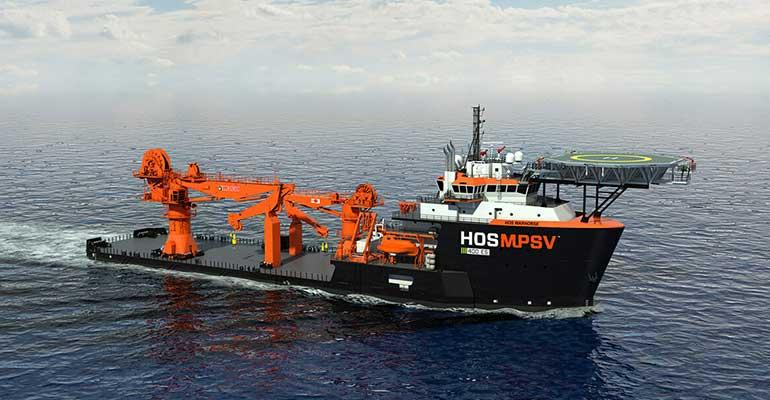The market for financing of U.S. maritime assets presents something of a dichotomy - if the discussions at the Marine Money conference, held in conjunction with the big Workboat expo in New Orleans, provide any indication. On the one hand, assets in the slow-and-steady inland barge trades and working vessel segment are seeing capital readily available, while the vessels in the offshore oil/gas and the nascent offshore wind segments are facing challenges in attracting and securing capital - though the energy trades have seen recent increases in activity climbing out of a multi-year low.
In a panel moderated by Kurt Plankl, Partner at the law firm Seward & Kissel, a group of funds providers offered a rosy view, in most cases highlighting growth in their recent activities. Kyle Parks, Executive Vice President at equipment funding specialist Stonebriar Corporate Finance, explained that its maritime portfolio stood at approximately $1 billion, including loans and ownership positions (with mainly Jones Act compliant equipment put out on bareboat charters to owners of boat and barge fleets with a focus on “….essential use assets with long useful lives…” and customers that: “….have got long track records for success in the market…
Kirk Phillips, President and CEO of Wintrust Commercial Finance, part of a regional bank based in Chicago with a maritime portfolio in the neighborhood of $400 million, on the same panel, talked about a preference for similar assets “…with known and proven operators…” with a sweet spot “…in the $5 to $50 million range.” Brett Hewitt, Senior Vice President- Marine, from Wells Fargo (also concentrating on Jones Act vessels) explained the bank’s offerings of debt and also bareboat charter finance for “…mostly inland river vessels - towboats and hopper barges, harbor assist and dredge market.” He differentiated Wells Fargo from other institutions, saying that the bank “leans in” to bareboat transactions: “We are happy to own the asset and take the residual risk,” he said. Some perspective did come from AMA Capital’s Kevin O’Hara who suggested that, over the past decade, the number of lenders to the sector had declined.
A panel held later in the day, moderated by veteran lawyer Charlie Papavizas from Winston & Strawn, featuring established OSV operators in the offshore oil patch (anything but slow and steady) offered a different perspective. Quintin Kneen, President and CEO of Tidewater (NYSE: “TDW”) said: “It’s a very exciting time globally…demand is high as it’s been in seven years…dayrate progression has accelerated.” Kneen did acknowledge that “access to capital” is one of several struggles that TDW and the other panel members are facing. Indeed, financiers will not fund purchases of new assets (or extensive renovations of boats that have been “cold stacked” in layup) without long-term commitments from charterers (often a reference to the oil majors). “Nobody is earning enough money on these <offshore> vessels to justify the replacement,” Kneen said- saying he did not have the solutions for finance, as well as technology questions. Panel member Bob Gwinn, a forty year veteran at Harvey Gulf Marine said, “There’s an easy solution- have an oil company give us a contract that pays the boat out….it costs a whole lot to build a new boat.” Speaking about possible Jones Act Service Operation Vessels (SOVs) for the offshore wind realm (which all of the Jones Act OSV operators are looking at), Gwinn said: “The prices are through the roof…you need a 10 to 15 year contract to pay those out.”
Still, it’s not all bad for the sector. Importantly, Todd Hornbeck, scheduled to join the panel was a “no show”- apparently due to some last-minute meetings connected with OSV boat owner Hornbeck Offshore’s launch of an Initial Public Offering of new equity shares- which dropped a few days after the Marine Money event. The company, which had been listed previously, (symbol “HOS” on the NYSE) was privatised following a 2020 pre-packaged bankruptcy filing. Major shareholders -alternative investment purveyors, Ares Management, Whitebox Advisors and Highbridge Capital (tied to JP Morgan Chase) will be cashing out portions of their 2020 bets.
Copyright © 2024. All rights reserved. Seatrade, a trading name of Informa Markets (UK) Limited.
Add Seatrade Maritime News to your Google News feed.  |

